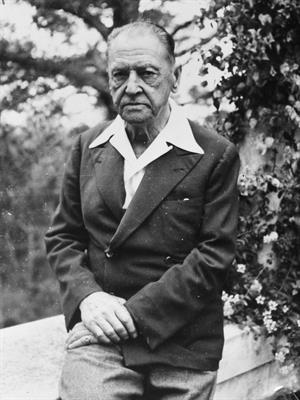PDF chapter test TRY NOW
Title: Princess September
Author: Somerset Maugham

William Somerset Maugham*
Somerset Maugham, born William Somerset Maugham, was a famous English playwright, novelist and short-story writer. He is well known for imbibing an apt understanding of human nature into his literary works.
He was born in the year 1874 in Paris, France, to Robert Ormond Maugham, a lawyer and Edith Mary (née Snell). Maugham's mother was diagnosed with tuberculosis in her early childhood, for which the doctors prescribed childbirth. Later, after the birth of the last stillborn child, she died at the age of 41. Maugham later lost his father to cancer two years after his mother's death. Hence, Maugham was orphaned at the age of 10, leaving him with immense emotional displeasure.
Maugham was forced to get under the guardianship of his pious uncle in London. His emotional trauma has led to a lifetime stammer, resulting in several job rejections at different levels. Being born into a family of lawyers, he was forced to defy his family's reputation and became a qualified obstetrician.
During his medical education at St.Thomas medical school, London, Maugham began writing fervently. Contrary to the widespread public opinion of his medical education affecting his literary aspirations, Maugham matured into one of the highest-paid writers of his time.
Maugham is most famous for his work titled "Of Human Bondage" (1915). His other works include "Liza of Lambeth" (1897), "The Moon and Sixpence" (1919), "Cakes and Ale: or, the Skeleton in the Cupboard" (1930), "The Razor's Edge" (1944) and so on.
In 1947, Maugham launched the Somerset Maugham Award to recognise the upcoming British writers under 35. Also, Maugham set on to influence several other writers of his time, most notably George Orwell.
Maugham then departed at 91 in his Riviera villa, La Mauresque, at Nice, France, in 1965.
Reference:
William Somerset Maugham*: Anefo, CC0, via Wikimedia Commons
